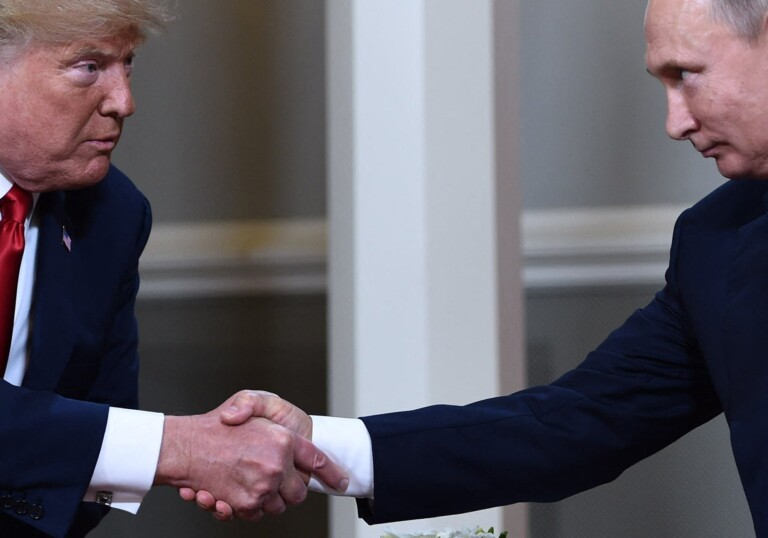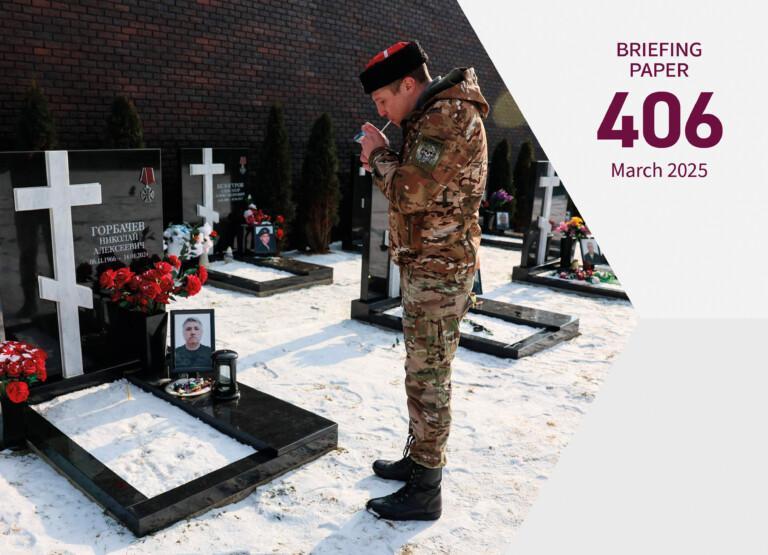
By sidelining Europe in talks with Russia on Ukraine, US President Donald Trump has grossly humiliated America’s closest allies. While his motives remain controversial and opaque, it would be premature to claim that the US and Europe are now parting ways. By making security a priority, Europe could restore its status as a key player in international affairs.
As the shock of Trump’s decision to negotiate a one-on-one peace deal with the Kremlin over the war in Ukraine subsides, Europe has begun to discuss – albeit feverishly – its own action plan for remaining a relevant foreign policy actor. To succeed in this effort, it may be prudent to first understand Trump’s game plan and the motivations driving his strategy.
There are at least three possible hypotheses.
The first is that Trump “knows not what he is doing” – namely that he does not understand that unless Ukraine maintains sufficient defence capabilities of its own and obtains ironclad security guarantees, there will be a pro-Moscow government in Kyiv. In such a scenario, Ukraine would receive no recovery funds and would continue losing population due to mass emigration. Meanwhile, Belarus, Moldova, Armenia, and Georgia would be placed firmly within the Russian sphere of influence.
If the West were to abandon Ukraine, it would suffer a second consecutive strategic defeat – the first being in Afghanistan – thereby weakening the West as a whole. Both NATO and the US would lose much of their clout in the eyes of the Global South, potentially triggering a series of security crises, starting with Taiwan. The temptation for certain states to go nuclear would increase, and the consequences would not stop there.
However, if Trump’s ignorance is the issue, the situation is not necessarily so dramatic. Security experts will brief him on the risks. Furthermore, once talks with Russia begin in earnest, Trump’s team may face another unpleasant surprise. For the Kremlin, holding bilateral talks with the White House is an achievement per se in terms of status, and hence one that could be drawn out indefinitely, unless the Ukrainian troops seize the initiative on the battlefield. Since the days of Soviet foreign ministers Viatcheslav Molotov and Andrei Gromyko, Russian diplomats have had no qualms about being uncompromising and are highly skilled at proposing complicated trade-offs. Meanwhile, Washington needs a result, not a process. Sooner rather than later, Trump may lose patience and pivot towards pressure tactics.
What is more likely, however, is not that Trump “does not know”, but that he does not care. For many reasons, both political and personal, Ukraine can hardly be close to his heart. Among those in the US who take a pro-Ukraine stance, there are very few representatives of big business, especially in the energy sector. If major energy companies had something to lose in Ukraine, Trump would likely act differently. But they do not – largely because Ukrainian oligarchs blocked their arrival in the past.
Trump will be even less concerned about the implications of a potential Ukrainian collapse for Europe. Millions of new refugees from Ukraine would cross European – not US – borders, becoming a burden for European, not American, budgets. Another major cause for concern for Europe is the possible deployment of Russian troops in Belarus or Moldova. This would further destabilize European security, but would have little practical effect on the US, especially if, by that point, NATO had already lost its cohesion.
Trump’s neglect, combined with arrogance, would be the worst possible scenario for both Ukraine and Europe. This approach – driven by ego, personal motives, financial interests and transactional aims – disregards the value-based component altogether. It would pave the way for a personal rapport to emerge between Trump and Vladimir Putin. Neither has ever concealed their condescending views of the EU and European countries as lacking true sovereignty. Furthermore, Putin has not hesitated to use “financial incentives” to make Europeans overlook democratic values when doing business in Russia.
The good news is that there is a third possible explanation. According to this view, Trump is not seeking peace in Ukraine at any cost. Rather, he is trying to kill two birds with one stone. On the one hand, he wants to pressure the Europeans into paying whatever he demands, as the alternative – dealing with Moscow without the US – would be even more costly. On the other hand, Trump wants to test what Putin would be ready to concede, which can only be determined during actual talks. If Moscow’s concessions are significant, an agreement could be concluded that at least protects Ukraine’s critical interests. Otherwise, the Trump-Putin “bromance” will once again fall apart, as it did after their Helsinki Summit in 2018.
In any case, Europe should prepare for difficult times and invest in its own defence. Its unwillingness to do so after 2014, and even after 2022, is a major factor in its current helplessness in dealing with Trump – or with Putin, for that matter. Failure to do so now would have far more serious consequences.









